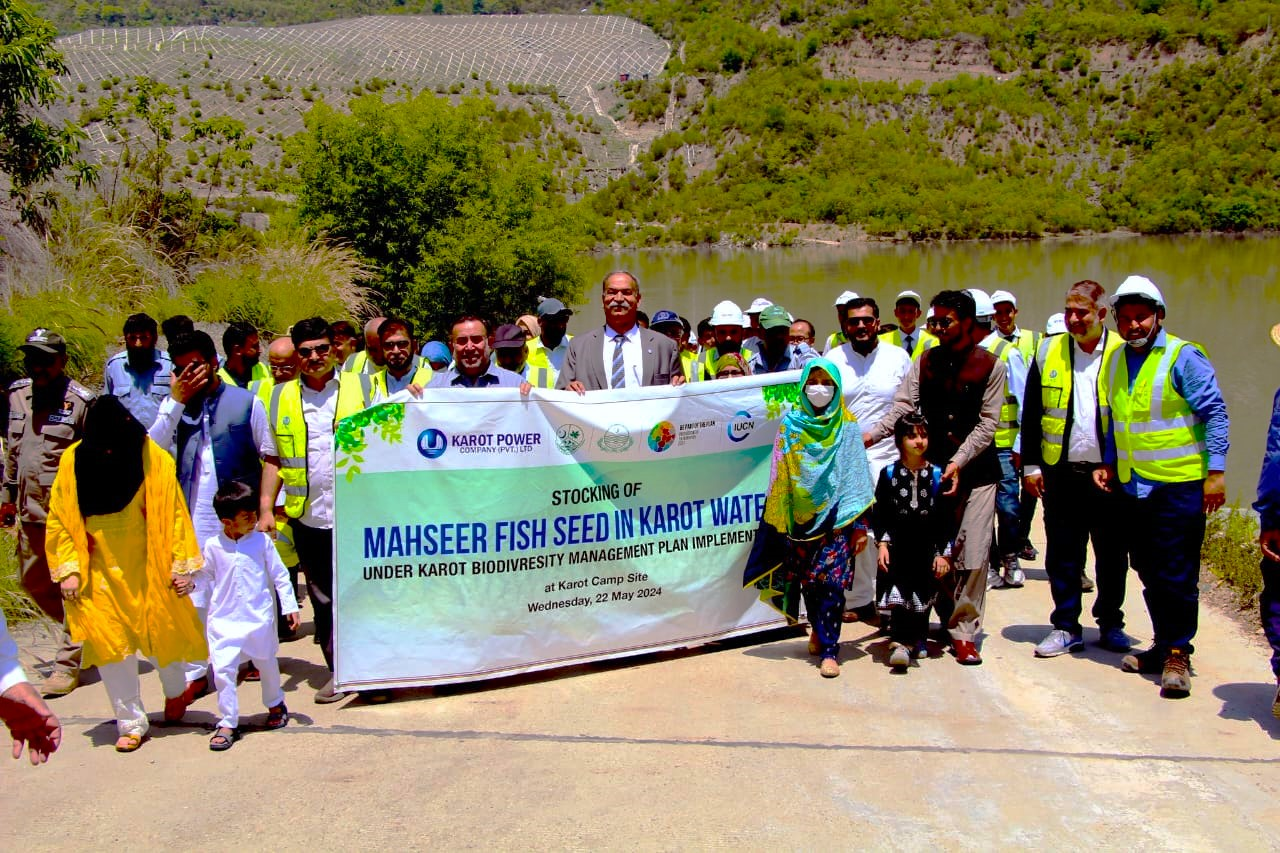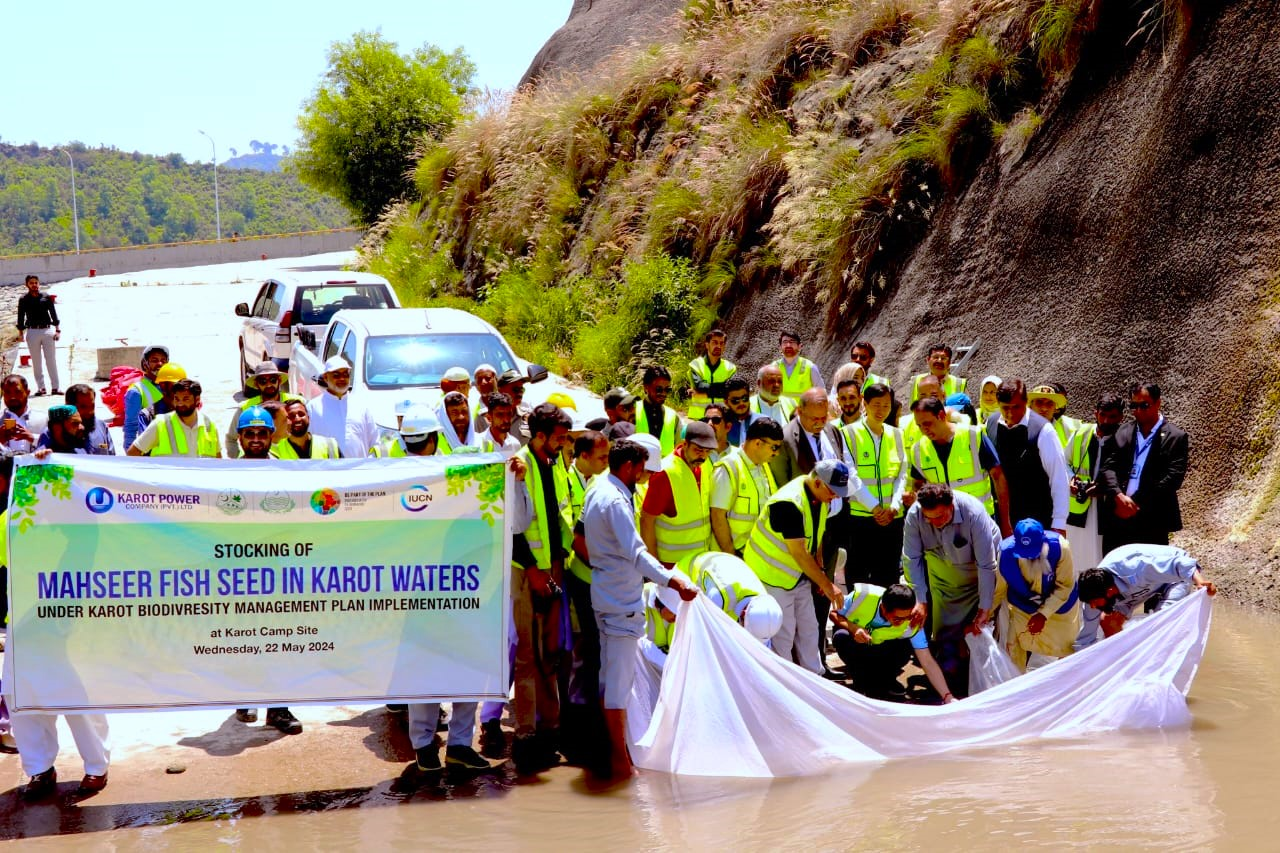RAWALPINDI – To mark the International Day for Biological Diversity, China Three Gorges Asia Africa Ltd. (CTGAAL) on Wednesday released 3,500 endangered Mahseer fingerlings into the waters at the Karot Hydro Power Project (KHPP).
The fish stocking was carried out under the Karot Biodiversity Management Plan at the Karot camp site. The event, organized by CTGAAL at KHPP, was attended by government officials from Punjab and Azad Kashmir, along with environmentalists, educators, students, and members of the local community. They also walked to create awareness among the masses about the endangered Mahseer fish.
The 720 MW KHPP, a mega power project under the China-Pakistan Economic Corridor (CPEC), is located at the border of Azad Jammu and Kashmir and Punjab. The Karot Power Company Limited (KPCL) is the executive company of the project, with China Three Gorges as the sponsor.
On the occasion, CTGAAL CEO Zhou Qiang emphasized the “role of biodiversity as the cornerstone of the company’s operations in Asia and Africa.”
Earlier this month, CTGAAL and the International Union for Conservation of Nature (IUCN) established an Implementation Office for the Biodiversity Management Plan in Beor, Punjab, to “assist in coordinating the biodiversity protection work being done around the Karot project.”
Last year, KPCL released around 5,000 Mahseer fingerlings into River Jhelum to protect the endangered species.

Walk to educate the masses about endangered Fish species.
Mahseer is a highly sought-after game fish known for its larger size, capable of growing up to 2.75 meters in length and weighing as much as 54 kilograms. Overfishing has significantly impacted its population, with Mahseer now frequently caught at much smaller sizes. Additionally, the species faces severe threats from habitat loss caused by urbanization and environmental degradation. Estimates suggest that the Mahseer population has declined by more than 50% in Pakistan, highlighting the urgent need for conservation efforts to protect and restore this species.

















